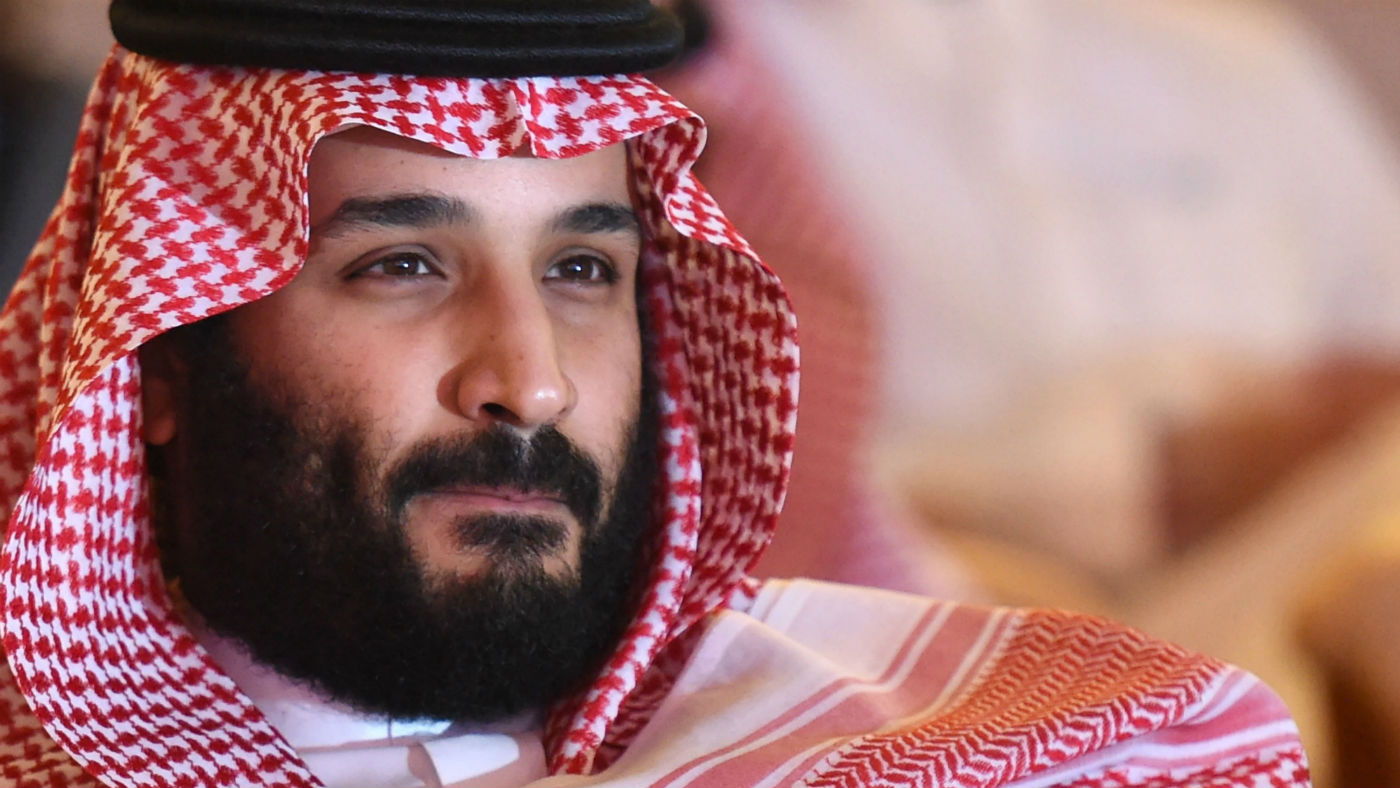Saudi prince consolidates power in ‘Arabian game of thrones’
In Depth: Crown Prince Mohammed bin Salman arrests dozens of government officials and fellow royals in purported anti-corruption sweep

A free daily email with the biggest news stories of the day – and the best features from TheWeek.com
You are now subscribed
Your newsletter sign-up was successful
The young crown prince and de facto ruler of Saudi Arabia Mohammed bin Salman made an audacious but risky power play this weekend, arresting 11 princes, four ministers and several dozen others while simultaneously accusing Iran of an “act of war”.
Prominent millionaire investor Alwaleed bin Talal is among those being held - a move not unlike the US “arresting Warren Buffett or Bill Gates”, diplomat Robert Jordan, a former US ambassador to Saudi Arabia, told CNBC.
Some Saudi watchers believe a coup attempt was uncovered, or may have begun, and that Crown Prince Mohammed crushed it. “All those suspected of being involved are now being purged,” says The New York Times.
The Week
Escape your echo chamber. Get the facts behind the news, plus analysis from multiple perspectives.

Sign up for The Week's Free Newsletters
From our morning news briefing to a weekly Good News Newsletter, get the best of The Week delivered directly to your inbox.
From our morning news briefing to a weekly Good News Newsletter, get the best of The Week delivered directly to your inbox.
The mass arrests – under the guise of an anti-corruption campaign – come after other eye-raising changes in the kingdom, including new limits on the powers of the state’s religious police, and a royal decree allowing women to drive.
“This is very risky,” a Saudi business leader told The Washington Post, noting that MbS – as the 32-year-old Crown Prince is known – is challenging senior princes and religious conservatives simultaneously. “He’s fighting too many wars at once.”
Indeed, the prince is fighting internally and externally.
Saudi state media “lashed out” at Iran today over the firing of a ballistic missile toward Riyadh by Houthi rebels in Yemen, reports Al Jazeera English. Saudi Arabia accuses Tehran of being behind the missile and has labelled it a potential “act of war”.
A free daily email with the biggest news stories of the day – and the best features from TheWeek.com
Tehran rejects the Saudi claim, the latest in “a multifronted confrontation between Saudi Arabia and Iran which is playing out on political and military battlefields throughout the region, including Lebanon, Syria and Yemen”, says The Daily Telegraph.
The outcry follows the shock resignation of Lebanese Prime Minister Saad Hariri, who delivered his resignation speech from the Saudi capital Riyadh on Saturday. Hariri cited Iranian influence across the region and said he was stepping down because he feared suffering the same fate as his assassinated father.
His resignation has “raised worries that the Gulf kingdom, under the leadership of its increasingly bullish Crown Prince Mohammad bin Salman, will squeeze Lebanon as a way to get to Iran’s proxy in the country, Hezbollah”, says The Washington Post.
Hezbollah, founded with Iranian support in 1982 to resist the Israeli invasion of Lebanon, has emerged as a regional power, to the consternation of Saudi Arabia.
The events of the past few days have led to parallels being drawn with the television show Game of Thrones, which follows a complex web of alliances and conflicts among noble families vying to either claim the throne or gain their independence from it.
“If this is an Arabian game of thrones, the headstrong young prince, who seeks to embody the pent-up aspirations of a people two-thirds of whom are under 30, has left no one in doubt he means to win,” David Gardner writes in the Financial Times.
“The weekend’s momentous events will inevitably revive the febrile speculation that King Salman, 81, is preparing to abdicate in MbS’s favour. All eyes are still on the throne.”
-
 Switzerland could vote to cap its population
Switzerland could vote to cap its populationUnder the Radar Swiss People’s Party proposes referendum on radical anti-immigration measure to limit residents to 10 million
-
 Political cartoons for February 15
Political cartoons for February 15Cartoons Sunday's political cartoons include political ventriloquism, Europe in the middle, and more
-
 The broken water companies failing England and Wales
The broken water companies failing England and WalesExplainer With rising bills, deteriorating river health and a lack of investment, regulators face an uphill battle to stabilise the industry
-
 Epstein files topple law CEO, roil UK government
Epstein files topple law CEO, roil UK governmentSpeed Read Peter Mandelson, Britain’s former ambassador to the US, is caught up in the scandal
-
 Iran and US prepare to meet after skirmishes
Iran and US prepare to meet after skirmishesSpeed Read The incident comes amid heightened tensions in the Middle East
-
 Which way will Trump go on Iran?
Which way will Trump go on Iran?Today’s Big Question Diplomatic talks set to be held in Turkey on Friday, but failure to reach an agreement could have ‘terrible’ global ramifications
-
 Israel retrieves final hostage’s body from Gaza
Israel retrieves final hostage’s body from GazaSpeed Read The 24-year-old police officer was killed during the initial Hamas attack
-
 China’s Xi targets top general in growing purge
China’s Xi targets top general in growing purgeSpeed Read Zhang Youxia is being investigated over ‘grave violations’ of the law
-
 Panama and Canada are negotiating over a crucial copper mine
Panama and Canada are negotiating over a crucial copper mineIn the Spotlight Panama is set to make a final decision on the mine this summer
-
 Iran unleashes carnage on its own people
Iran unleashes carnage on its own peopleFeature Demonstrations began in late December as an economic protest
-
 How oil tankers have been weaponised
How oil tankers have been weaponisedThe Explainer The seizure of a Russian tanker in the Atlantic last week has drawn attention to the country’s clandestine shipping network